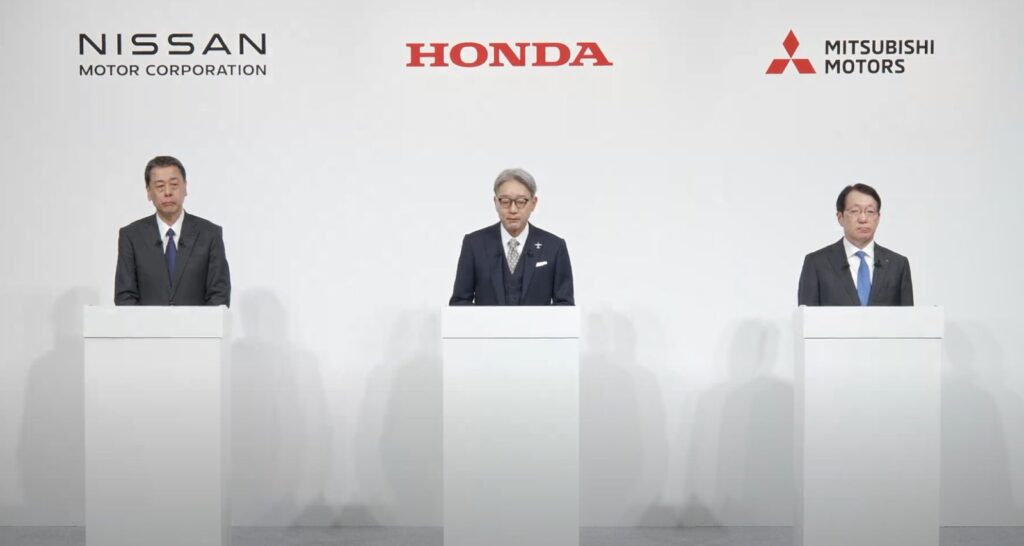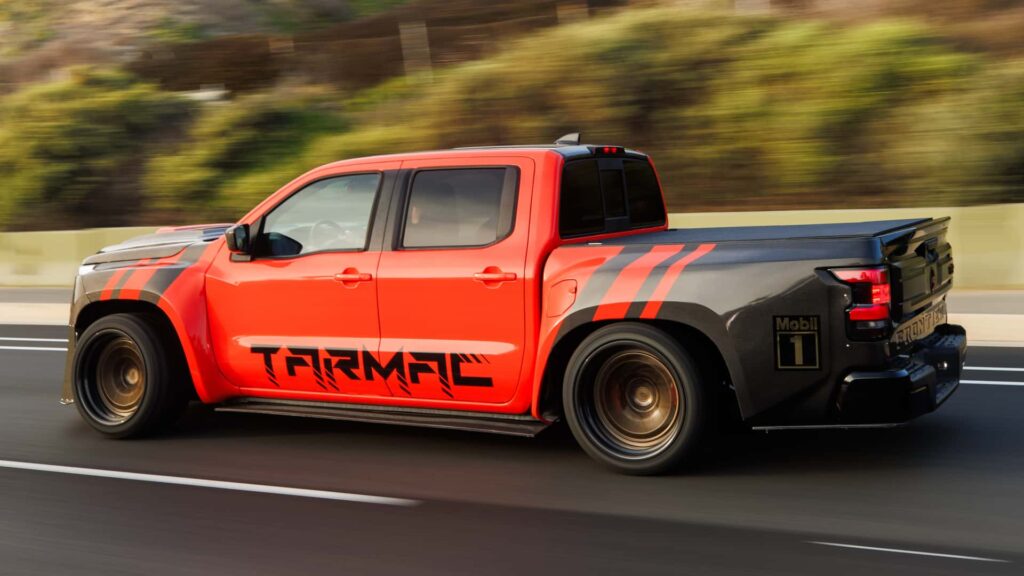
Nissan Honda Strategic Partnership – What’s on the Agenda?
An MOU was signed between Nissan and Honda on 1 August. This agreement initiates a strategic partnership emphasizing intelligence and electrification. Discussions are underway for Mitsubishi Motors’ involvement in this collaboration. The potential for a broader alliance aims to create synergies within the rapidly evolving automotive landscape.
Formation of a Joint Holding Company – A joint holding company is proposed to formalise the partnership. This structure will enable collaborative decision-making and resource optimisation. The initiative reflects a response to dramatic changes in the automotive industry, particularly the shift toward sustainable and intelligent mobility. Mitsubishi Motors is expected to finalise its participation by January 2025.
Shared Expertise: R&D and Supply Chains in Focus
The feasibility study focuses on leveraging shared expertise among Nissan, Honda, and Mitsubishi Motors. Potential areas include research and development in electrification, shared manufacturing capabilities, and streamlined supply chains. These synergies aim to maximise efficiency and competitiveness in global markets.
This is an opportunity to address industry challenges collectively. Honda’s The significance of intelligence-driven solutions and alignment with global trends is the need of the hour. This lays the ground for unified commitment to innovation.
Nissan Honda Strategic Partnership – Regulatory and Financial Considerations
The collaboration involves preparing regulatory filings, including a potential Form F-4 with the U.S. Securities and Exchange Commission. This document will include a detailed prospectus and supporting materials. Stakeholders will be able to access these filings through the SEC website, ensuring transparency.
The automotive sector is experiencing significant transformation, described as a change occurring once in a century. Companies face increased pressure to adapt to electrification, autonomous driving technologies, and stringent environmental regulations. This partnership is positioned to address these challenges collectively.
Navigating Risk: Market Demand and Economic Shifts
Several risks could influence the collaboration’s success. Fluctuating market demands, regulatory shifts, and economic uncertainties pose potential challenges. These factors underscore the importance of adaptive strategies to ensure the integration achieves its intended goals.
Environmental regulations remain a critical consideration for the partnership. Changes in emission standards and increasing tariffs could affect operational costs and market competitiveness. The collaboration aims to mitigate these risks through innovative and compliant solutions.
Potential Benefits of Integration
This partnership offers opportunities to enhance value for stakeholders. Shared resources, reduced operational redundancies, and expanded market reach are anticipated outcomes. The integration is designed to deliver long-term benefits while addressing immediate industry needs.
Mitsubishi Motors plans to decide on its participation by January 2025. Preparations for regulatory approvals and stakeholder communications are ongoing. The partnership’s progress will likely set a precedent for future collaborations within the automotive sector.
Leaders Speak: Unified Goals in a Fragmented Market
Nissan Director, President, CEO and Representative Executive Officer Makoto Uchida said: “Honda and Nissan have begun considering a business integration, and will study the creation of significant synergies between the two companies in a wide range of fields. It is significant that Nissan’s partner, Mitsubishi Motors, is also involved in these discussions. We anticipate that if this integration comes to fruition, we will be able to deliver even greater value to a wider customer base.”
Honda Director and Representative Executive Officer Toshihiro Mibe said: “At this time of change in the automobile industry, which is said to occur once every 100 years, we hope that Mitsubishi Motors’ participation in the business integration discussions of Nissan and Honda will lead to further social change, and that we will be able to become a leading company in creating new value in mobility through business integration. Nissan and Honda will start the discussion from today onwards with an aim to clarify the possibility of business integration by around the end of January in line with the consideration of Mitsubishi Motors.”
Mitsubishi Motors Director, Representative Executive Officer, and President and CEO Takao Kato said: “In an era of change in the automotive industry, the study between Nissan and Honda about a business integration will accelerate synergy maximization effects, bringing high value also to the collaborative businesses with Mitsubishi Motors. In order to realize synergies and to make the best use of each company’s strengths, we will also study the best form of cooperation.”


